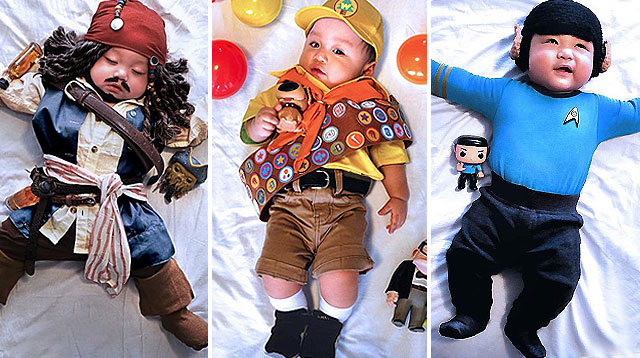Pop culture has an undeniable influence on our lives, shaping our entertainment, fashion, and even our language. One aspect of pop culture that holds a unique power is the ability to immortalize names. From iconic characters in movies, TV shows, and books, to influential musicians and athletes, these names become ingrained in our collective consciousness. In this article, we explore the reasons why pop culture names will never die and their enduring impact on society.

Cultural Zeitgeist
Pop culture names often become synonymous with the cultural zeitgeist of a particular era. They reflect the prevailing attitudes, values, and trends of their time. When we hear names like Superman, James Bond, or Darth Vader, we immediately associate them with specific periods in history. These characters have transcended their fictional realms to become enduring symbols of the societal and cultural climate in which they were created.
Memorable and Catchy
One of the key reasons why pop culture names never die is their memorability and catchiness. These names are carefully crafted to leave a lasting impression on the audience. Whether it’s the alliteration of Peter Parker, the rhythmic sound of Beyoncé, or the unusual combination of Hermione Granger, these names stick with us long after the story ends. Their resonance in our minds ensures they remain etched in popular consciousness.
Personal Identification
Pop culture names provide a means for personal identification and self-expression. Many individuals find a sense of belonging or connection by adopting the names of their favorite characters. Cosplayers, fan fiction writers, and even parents naming their children are all testament to the enduring influence of these names. They become part of our identity, reflecting our interests and passions, and allowing us to establish a connection with like-minded individuals.
Impact on Language and Slang
Pop culture names often permeate everyday language and contribute to the evolution of slang. Phrases like “I’ll be back” (Arnold Schwarzenegger in The Terminator) or “May the force be with you” (Star Wars) have become iconic catchphrases that people use in various contexts. Similarly, terms like “BFF” (best friends forever) and “selfie” have their origins in pop culture. These names and phrases become part of our lexicon, effortlessly weaving themselves into our conversations.
Enduring Legacy
The lasting impact of pop culture names is further cemented by their ability to transcend generations. Characters like Mickey Mouse, Batman, or Sherlock Holmes have been delighting audiences for decades, captivating new fans with each iteration. Through movies, TV series, merchandise, and spin-offs, these names continue to resonate across different eras, ensuring their place in popular culture for years to come.
Pop culture names possess a timeless quality that allows them to transcend the boundaries of their original context. They become touchstones of our shared experiences, defining eras and shaping our cultural landscape. These names have a lasting impact on language, self-expression, and personal identification. As long as we continue to engage with and celebrate pop culture, the names of iconic characters will never truly die. They will always find a way to live on, reminding us of the power and influence of the stories and characters that have touched our lives.
Here are the most popular 10 pop culture-inspired baby names for boys and girls, along with their meanings:
Girls:
Luna – Meaning “moon” in Latin. Popularized by the character Luna Lovegood in the Harry Potter series.
Harper – Originally a surname, it gained popularity after the author Harper Lee, known for “To Kill a Mockingbird.”
Arya – Inspired by the character Arya Stark from the TV series “Game of Thrones.” It means “noble” in Sanskrit.
Hazel – Meaning “the hazelnut tree.” Popularized by the novel and film “The Fault in Our Stars.”
Scarlett – Derived from the color scarlet, representing passion and vitality. Influenced by the character Scarlett O’Hara from “Gone with the Wind.”
Aurora – Meaning “dawn.” Inspired by the Disney princess in the movie “Sleeping Beauty.”
Penelope – Derived from Greek mythology, Penelope was the faithful wife of Odysseus in Homer’s “Odyssey.”
Willow – Named after the willow tree, symbolizing grace and flexibility. Popularized by the character Willow Rosenberg from the TV series “Buffy the Vampire Slayer.”
Ava – Derived from the Latin word “avis,” meaning “bird.” It gained popularity due to its association with actress Ava Gardner.
Mia – Derived from the name Maria or Miriam, meaning “wished-for child” or “bitter.” Influenced by actress Mia Farrow.
Boys:
Liam – Derived from the Irish name Uilliam, meaning “resolute protector.” Popularized by actor Liam Neeson.
Noah – Derived from the Hebrew name Noach, meaning “rest” or “comfort.” It gained popularity due to its biblical significance.
Mason – Originally a surname, it became a popular first name due to its association with stonework and craftsmanship.
Oliver – Derived from the Latin word “oliva,” meaning “olive tree.” It gained popularity due to its classic and timeless appeal.
Benjamin – Derived from the Hebrew name Binyamin, meaning “son of the right hand.” It has a strong biblical background.
William – Derived from the Germanic name Wilhelm, meaning “resolute protector.” It is a classic and timeless name.
Henry – Derived from the Germanic name Heinrich, meaning “ruler of the home.” It has a regal and dignified feel.
James – Derived from the Hebrew name Jacob, meaning “supplanter” or “one who follows.” It is a traditional and strong name.
Ethan – Derived from the Hebrew name Eitan, meaning “strong” or “enduring.” It gained popularity due to its simplicity and strength.
Alexander – Derived from the Greek name Alexandros, meaning “defender of the people.” It has a noble and heroic connotation.








